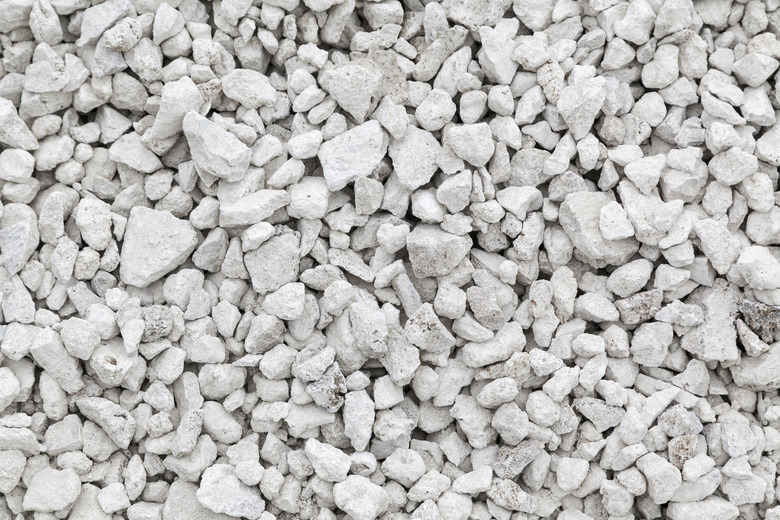Why Does Vinegar Affect Limestone?
When limestone is introduced to vinegar, a chemical reaction occurs. Bubbles will begin rising off the limestone and a little heat will be produced. The vinegar and limestone yield several different compounds after the reaction occurs. There are several reasons why these events happen.
Reaction
Reaction
Vinegar is diluted acetic acid, and limestone is calcium carbonate. Acetic acid is as it's named, an acid. Calcium carbonate is a base, and is commonly used as an antacid for indigestion. Heat is always produced between an acid and a base. Acids and bases create salts and water when mixed together.
Products
Products
The fizzing bubbles are carbon dioxide rising to the surface. These rising bubbles are the same as bubbles in soda pop and are called "effervescence." The vinegar becomes water, and a calcium salt named calcium acetate is created. Calcium acetate is commonly used as a food additive and buffer.
Bonds
Bonds
Bonds are what hold together chemical compounds. When these bonds are destroyed, a reaction occurs. When bonds are broken, energy is released which creates heat. Vinegar reacting with limestone breaks the bonds of calcium carbonate and acetic acid. New bonds are created out of the broken compounds, which are the products of the reaction.
Chemical Equation
Chemical Equation
CaCO3 + 2CH3COOH = Ca(CH3COO)2 + H2O + CO2. Limestone (CaCO3) combined with vinegar (2CH3COOH ) yields calcium acetate Ca(CH3COO)2, water (H20) and carbon dioxide (CO2). This equation shows how each compound is broken and bonded, and the products of the reaction.
Cite This Article
MLA
Hemmer, Sean. "Why Does Vinegar Affect Limestone?" sciencing.com, https://www.sciencing.com/vinegar-affect-limestone-7888211/. 24 April 2017.
APA
Hemmer, Sean. (2017, April 24). Why Does Vinegar Affect Limestone?. sciencing.com. Retrieved from https://www.sciencing.com/vinegar-affect-limestone-7888211/
Chicago
Hemmer, Sean. Why Does Vinegar Affect Limestone? last modified March 24, 2022. https://www.sciencing.com/vinegar-affect-limestone-7888211/
